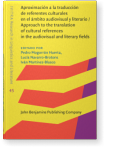Transposition of a distorted universe
Cultural elements in The night is short, walk on girl
by Morimi Tomihiko and its English translation
This paper identifies various types of cultural elements
present in the novel The Night is Short, Walk on Girl by
Morimi Tomihiko, and investigates how they have been dealt with in the
English translation. The novel relies heavily on connotative elements in the
Japanese language (gokan) which evoke culturally based
associations in the minds of readers. While the translation accurately
transmits the main meaning of the terms, many of the connotations have been
lost, and, as a result, the translated text conveys much less information
than the source text. The paper recommends that the translation of
connotative cultural elements, which has been insufficiently studied, be the
subject of more in-depth research.
Article outline
- 1.Introduction: Reading experience as an encounter with a distinct universe
- 2.Morimi Tomihiko and Yoru wa mijikashi arukeyo
otome
- 3.Culture and the problem of translation — relevant concepts
- 4.Methodology
- 4.1Material
- 4.2Methodology
- 5.Results and analysis
- 5.1Results
- 5.2Analysis
- 5.2.1Type 1: Cultural references based on Newmark (1988)
- 5.2.2Type 2: Intertextuality and its parodies
- 5.2.3Type 3: Betrayal of expected gokan connotations
- 5.2.4Type 4a: Pseudo-classical gokan connotation: Archaic vocabulary
- 5.2.5Type 4b: Pseudo-classical gokan connotation: Archaic verb
and adjective conjugations
- 5.2.6Type 4c: Pseudo-classical connotation or “gokan”: Idioms written
in Chinese ideograms
- 5.2.7Type 5: Exaggeration
- 6.Considerations and conclusions
- Author queries
-
Notes
-
References
This content is being prepared for publication; it may be subject to changes.
